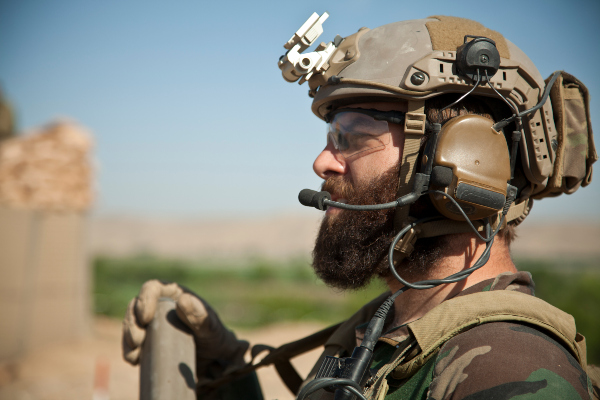The United States Marine Corps (USMC) has a terrific reputation among the military branches.
Marines are well recognized for their contributions to expeditionary and amphibious operations.
Furthermore, Marines have the opportunity of joining special forces through MARSOC.
Marine Special Forces provide advanced direct action, special reconnaissance, and foreign internal defense.
Learn more about Marine Special Forces and what it takes to join the United States Marine Forces Special Operations Command (MARSOC).
Related Article: How To Join The US Marine Corps
What Types of Marine Special Forces are there?
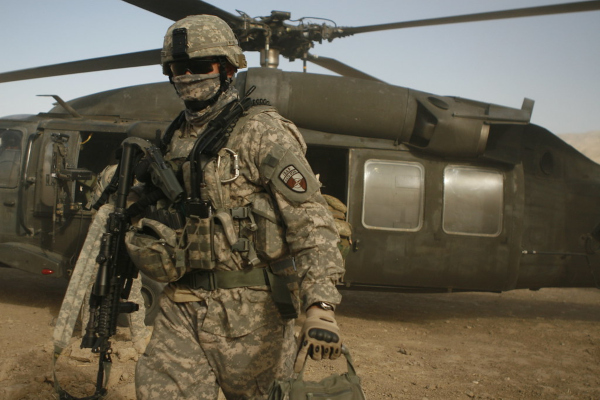
The United States Marine Corps (USMC) currently has over 177,000 active-duty members along with an additional 35,000 in reserves.
A small fraction of Marines has the special opportunity of joining the United States Marine Forces Special Operations Command (MARSOC).
MARSOC serves as an extension of the United States Special Operations Command (SOCOM) and includes two Marine Special Forces.
These special forces provide direct action, special reconnaissance, and foreign internal defense for the U.S. Armed Forces.
Additionally, Marine Special Forces may assist in counter-terrorism or information-gathering operations.
Service members that get the rare opportunity of joining SOCOM or MARSOC become part of some of the most elite fighting forces in the world.
Marine Special Forces Units
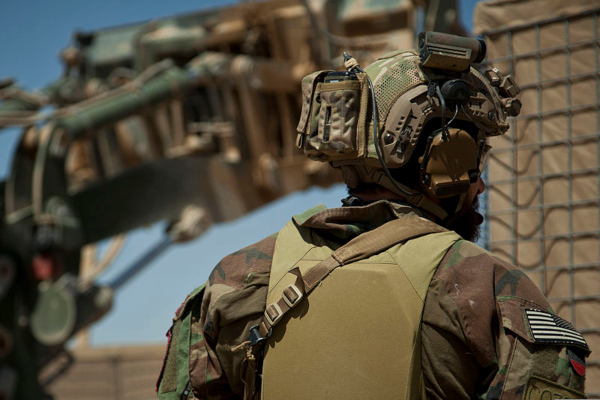
The Marine Special Forces umbrella includes the following units:
- MARSOC: The United States Marine Forces Special Operations Command (MARSOC) oversees all special forces in the Marines. Its core capabilities are direct action, special reconnaissance, and foreign internal defense.
- Force Recon: Marine Force Reconnaissance (FORECON) produces military intelligence for the command element of the Marine Air-Ground Task Force (MAGTF). It is part of the USMC Special Operations Capable Forces (SOC).
- Scout Snipers: Marine Scout Snipers have completed the Marine Corps Scout Sniper School and have a military rank of Lance Corporal or higher. This position is currently phasing out and snipers will be cross-trained into Scout teams or Reconnaissance by the end of 2024.
- Radio Recon Teams (RRT): Marine Radio Reconnaissance Teams (RRT) collect signals intelligence for SOC. They deploy for missions related to the Marine Expeditionary Unit (SOC) and other special needs.
- Maritime Raid Force (MRF): The USMC Maritime Raid Force (MRF) is another member of the Marine Special Forces. The unit conducts special operations that fall outside the norm of traditional amphibious raids.
Related Article – Marine Counterintelligence (MOS): Career Details
Additional Marine Special Forces
- Maritime Special Purpose Force (MSPF): The Marine Maritime Special Purpose Force (MSPF) is now inactive but worked closely with MRF. The special operations capable force could deploy in low-profile settings as well as other missions that have unique demands.
- ANGLICO: The Air Naval Gunfire Liasion Company (ANGLICO) is an airborne fire support special unit of the Marine Corps. ANGLICO works closely with the Marine Air-Ground Task Force (MAGTF) to carry out specialized missions.
- USMC Special Reaction Team: Marine Special Reaction Teams (SRT) respond to high-risk situations involving a military base or compound. Consequently, Marine SRT units frequently work alongside other organizations including civilian police departments.
- Fleet Anti-Terrorism Security Team: The Marine Corps Fleet Anti-Terrorism Security Team (FAST) lives up to its name. The rapid response unit can deploy to government installations around the globe. Marine FAST teams specialize in close quarters combat (CQC) and high stakes hostage rescue.
- Recapture Tactics Team: Marine Recapture Tactics Teams are another working component of the USMC Security Force Regiment. The team is dedicated to security and anti-terrorism.
MARSOC
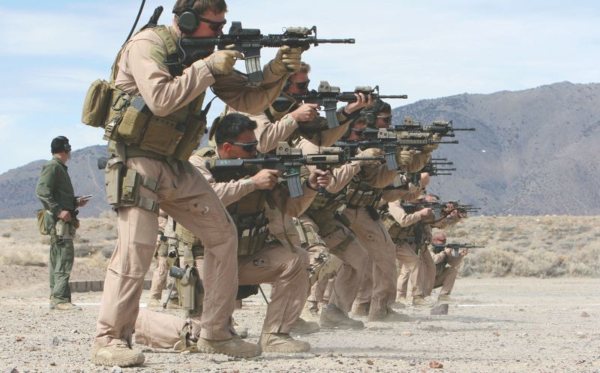
The United States Marine Forces Special Operations Command (MARSOC) functions as the headquarters for Marine Special Forces.
MARSOC handpicks members for the elite forces in the Marine Corps Raiders.
Raiders serve as the critical direct action, special reconnaissance, and foreign internal defense teams for the USMC.
Additionally, MARSOC is trained to perform counter-terrorism and information operations.
Marines that seek to join MARSOC endure years of training and preparation for the role.
Raiders must receive secret security clearance like other Marine Special Forces.
The background investigation is performed by the Department of Defense (DoD) and includes an extensive look into your personal character, finances, and history.
Furthermore, recruits must meet exceedingly difficult physical fitness training requirements like 10-mile marches while carrying a 45-pound rucksack.
Raiders are also very good in water so they receive a good deal of swimming training.
You’ll need to attend the Assessment and Selection (A&S) course. This is a mandatory course to screen applicants for physical ability, situational awareness, and confidence.
It includes two phases, the first of which is a three-week evaluation of physical and mental fortitude. The second helps identify Marines suitable for the MARSOC mission.
Next comes the nine-month Marine Special Operations Individual Course (ITC) that will prepare you for life as a Marine Raider.
Related Article – Marine Infantry MOS Guide
Force Recon
Marine Force Reconnaissance (FORECON) functions under the USMC Special Operations Capable Forces (SOC).
It supplies critical military intelligence to the command element of the U.S. Marine Air-Ground Task Force (MAGTF).
Additionally, Marine FORECON works closely with operating units of the Fleet Marine Force (FMF).
The establishment of MARSOC in 2006 has distributed some of the work FORECON used to accomplish to other Marine Special Operations Teams (MSOT).
Nonetheless, FORECON is still incredibly important in gathering information about others behind enemy lines.
They often perform unconventional special operations while supporting conventional warfare.
The ability of teams to perform deep reconnaissance independently makes FORECON an important addition to Marine Special Forces.
Scout Snipers
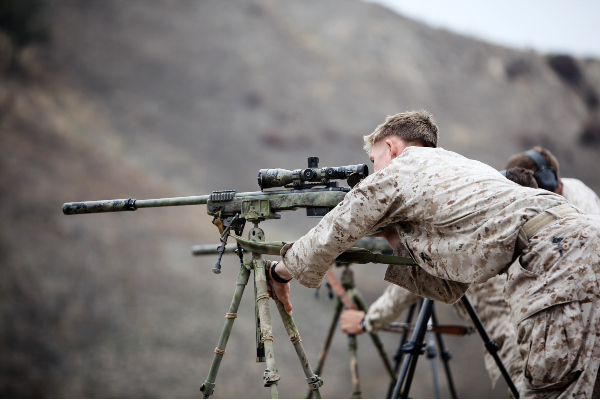
Most people are familiar with the work of Scout Snipers even if they are not interested in joining the military.
The position presents a lot of prestige and honor as serving the country in Marine Special Forces as a scout sniper can take you a long way.
Scout Sniper (MOS 0317) is a secondary MOS in the Marine Corps.
Snipers earn this secondary MOS in addition to their primary role as Marine Corps infantrymen or reconnaissance.
The Marine Corps is phasing out this MOS, however, and moving current snipers to scout or reconnaissance units. They expect to deactivate the MOS completely by October 2024.
Marine Scout Snipers have proven extremely important as their stealth and ability to eliminate targets discreetly make them very valuable.
Radio Recon Teams (RRT)
The Radio Reconnaissance Platoon (RRT) is another addition to Marine Special Forces.
Marine RRT is a member of Marine Corps Special Operations Command, Detachment One.
As a result, Radio Reconnaissance Platoons work alongside other units of the Marine Expeditionary Unit (SOC) during operations.
While Marine Radio Reconnaissance Platoons are technically not a Special Missions Unit (SMU), the team still executes specialized jobs with elite forces, which makes them a little different from your average Marine.
Radio Recon Teams (RRT) produce indications and warnings for fellow Marines as well as produce limited electronic warfare.
Their communications support, as well as reconnaissance and surveillance, contribute heavily to the intelligence of the USMC.
Recruits still need to complete the Army Airborne School (they are trained to jump out of aircraft) along with the Basic Reconnaissance Course and Survival, Evasion, Resistance, and Escape (SERE) course.
Lastly, Radio Recon Teams (RRT) usually are fluent in several different languages including Arabic, Russian, Korean, and Turkish.
You’ll also learn how to interrupt Morse code and other old methods of communication.
Related Article – Marine Corps Grooming Standards: Hair, Beard, And Nail Regulations
Maritime Raid Force (MRF)
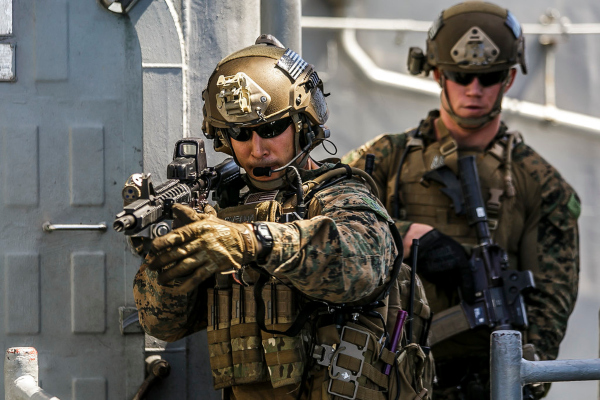
The Maritime Raid Force (MRF) is one of several subunits that previously performed operations under the U.S. Marine Corps Maritime Special Purpose Force (MSPF).
These specialized sub-units are comprised of members from other Marine Expeditionary Units (MEU).
The Maritime Raid Force (MRF) focuses on missions that include structures in or near water. These include ships and oil and gas platforms.
Marine MRF utilizes speed and stealth to take down enemy forces by surprise.
The Maritime Raid Force has evolved with the emerging threat of piracy in open waters. In 2012, the MRF replaced the Maritime Special Purpose Force.
The training for Marine MRF is considerable as recruits learn a variety of skills and survival techniques.
Marine MRF deals primarily with direct action involving intelligence gathering or hostage rescue, which teaches Marines to be able to confront a variety of situations.
Maritime Special Purpose Force (MSPF)
The Maritime Special Purpose Force (MSPF) was a specialized sub-unit that is no longer active.
The MSPF was replaced by the Maritime Raid Force (MRF) in 2012.
Marine MSPF were considered special operations capable forces that could deploy and present a low profile. These units generally operated in small teams.
The Maritime Special Purpose Force (MSPF) provided precision skills to complement other teams performing maritime special operations.
Additionally, Marine MSPF performed other duties traditionally not associated with amphibious raid companies.
The MSPF provided rapid direct action capabilities and was often responsible for hostage rescue in urban areas.
ANGLICO
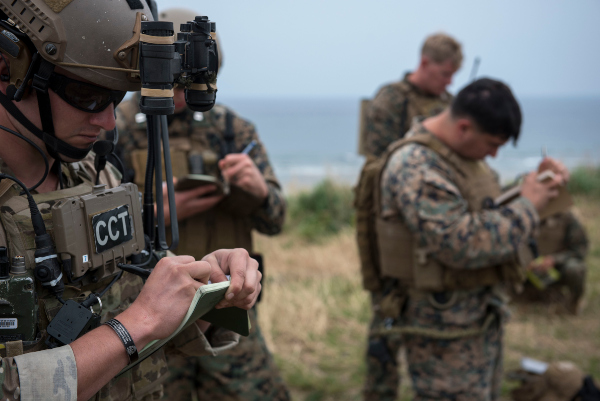
The Air Naval Gunfire Liasion Company (ANGLICO) is a unique team within Marine Special Forces.
The airborne unit provides fire support along with the Marine Air-Ground Task Force (MAGTF).
The two special forces work closely together to plan, coordinate, and conduct joint exercises against the enemy.
ANGLICO never gets assigned its own battlefield as the unit is constantly on the move.
The small teams generally do not travel in groups larger than 4 to 5 members.
However, ANGLICO can also deploy as an entire company to support large-scale MEU operations.
Team members are all very well trained even if each Marine has its own specialty.
Marine ANGLICO is highly regarded and produces some extremely well-trained operatives.
ANGLICO units may perform a wide variety of tasks yet most of its work is associated with close air support.
The training program for ANGLICO seeks candidates that are proficient in multiple skills.
You will receive airborne training and jump qualification at the legendary Army Airborne School at Fort Moore.
Related Article: Marine Corps Height And Weight Standards
Special Reaction Team
The Special Reaction Team (SRT) is a lesser-known group among Marine Special Forces yet that is not to underestimate its importance.
Marine Special Reaction Teams are unique in that they train along with law enforcement units of other branches.
Moreover, Marine SRT works closely with civilian police departments to remain organized and prepared.
Marine Special Reaction Teams are first responders to the most dangerous high-risk situations within a military base or compound.
For this reason, you could say that Marine Special Reaction Teams (SRT) are the military equivalent of police SWAT teams.
Recruits that are interested in joining Marine SRT need to complete their training at the U.S. Army Military Police School at Fort Leonard Wood (Missouri).
Fleet Anti-Terrorism Security Team
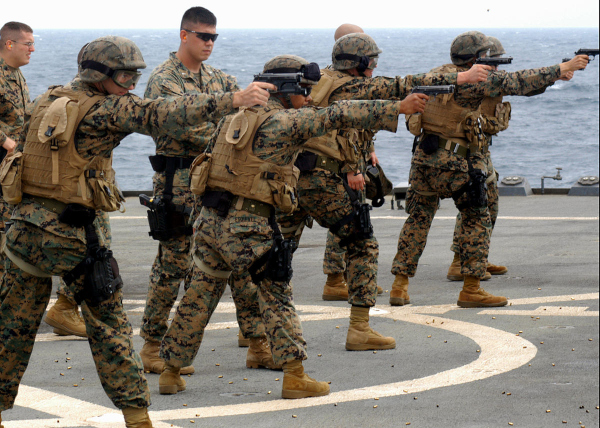
Marine Fleet Anti-Terrorism Security Teams (FAST) live up to their title.
These platoons are capable of rapid deployment anywhere in the world to immediately shore up international security.
Consequently, Marine FAST units are often deployed to U.S. government installations across the globe to restore peace.
Marine Fleet Anti-Terrorism Security Teams (FAST) specialize in close-quarters combat (CQC) and hostage rescue involving high-priority targets.
Marine FAST has a long tradition within the military branch as it was established in the late 1980s.
FAST Marines only provide limited duration fire support to protect vital naval and national assets before moving on to the next objective.
Marine FAST units feature some of the most advanced weapons and gear in the world.
Furthermore, FAST team members are extremely well-trained and prepared for a variety of conflicts.
FAST companies must maintain a high degree of readiness as they may get called to anywhere in the world at a moment’s notice.
Fleet Anti-Terrorism Security Teams provide support for both the Marine Corps and U.S. Navy.
Recapture Tactics Team
Recapture Tactics Teams (RTT) are part of the Marine Corps Security Force Regiment.
Consequently, they do not deploy and instead remain permanently at locations with high-value assets.
For example, Marine Recapture Tactics Teams may protect Nuclear Weapon Stations or U.S. Naval installations that need an additional layer of protection.
Marine RTT focuses first and foremost on responding to security threats at the location where they are stationed.
Fittingly, they have the training to recapture property, materials, or personnel from a conflict such as a hostage situation.
Marine Recapture Tactics Teams seek candidates with a diverse range of skills.
The training primarily focuses on close-quarters combat as well as security.
Marine RTT training is very similar to the demands of FAST, with candidates needing to complete several schools before progressing to an official designation.
Related Article: Coast Guard Special Forces
Conclusion
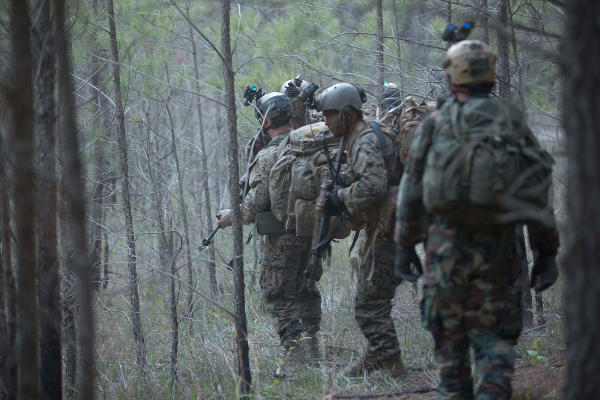
Marine Special Forces represent several units that provide advanced security and protection to the United States of America.
Special Forces spend more time training and preparing for advanced roles that often involve dangerous or highly confidential operations.
Marine Special Forces have different specialties that are often combined with other units, or the Marine Expeditionary Unit (MEU).
While it generally takes years to join Marine Special Forces, it is well worth the journey if you are willing to work hard!
- 5 Best Jobs for Female Marines - June 20, 2024
- 10 Best Marine Corps Recruiting Videos of All Time - June 20, 2024
- Marine Corps Requirements - June 20, 2024

